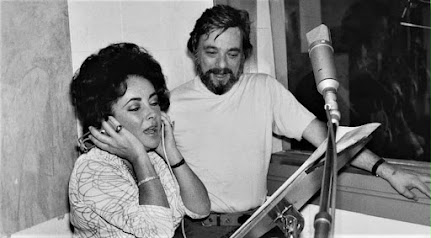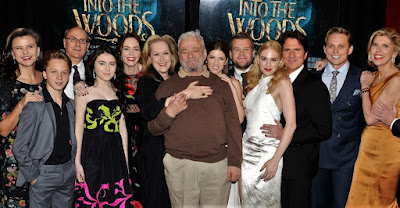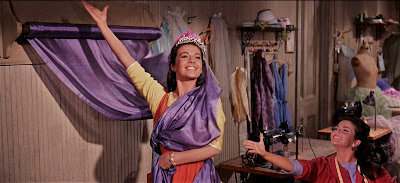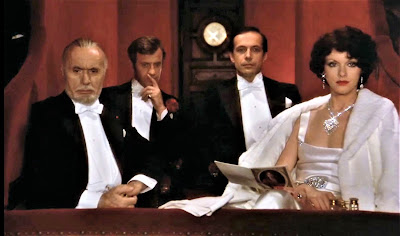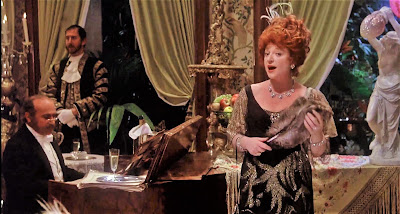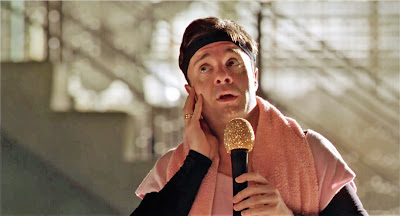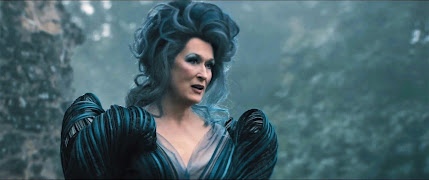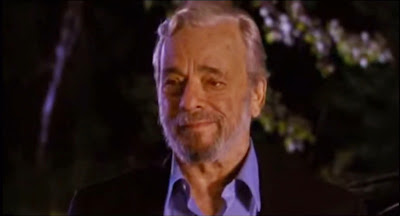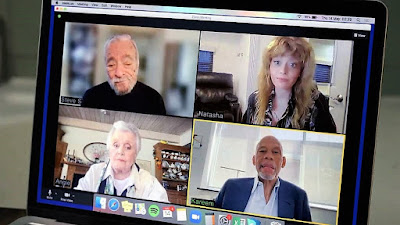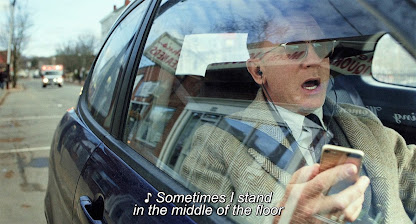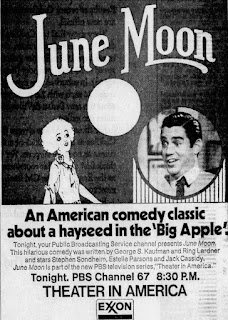 |
| What The Hell Did I Just Watch? |
"Movies are the memories of our lifetime." Martin Scorsese
 |
| The Fabelmans (2022) - Steven Spielberg |
Except when they're not.
I've loved movies all my life. And of all the things that make film the art form that speaks to me with the most eloquence, my favorite is its magical ability to feed dreams and create memories. Indeed, the miracle of making lasting memories is so much a part of what I associate with movies that I seldom consider when it's not. Which is most of the time.
Not every movie can, nor needs to be, the kind of movie we never forget. But I'm always amazed how some films, through no effort on my part, practically fuse themselves to my psyche on contact, while others slide off like Teflon.
Which brings me to the subject of this post.
Saying
To Movies I Forgot I Ever Saw
(Something tells me I'm not the only one who doesn't remember seeing this
1987 comedy starring Shelley Long and Corbin Bernsen)
A recent spate of hysterical weather here in L.A. left me with plenty of time and zero excuses not to give my apartment a thorough cleaning. While clearing out a particularly Fibber McGee-ish closet, I came upon a box crammed with old movie reviews I'd written between the years 1976 to 1990. (Since my teens, I'd gotten into the habit of taking a pen and pad with me to the movies, scribbling notes in the dark to be later transposed into reviews written for my eyes only.) The discovery of this stack of files, containing roughly some 600 typed (my Wite-out® addiction was out of control) and handwritten reviews, mercifully put an end to cleaning for the day as I immersed myself in reading about all the films I'd seen during that time.
Even the oldest of my essays felt familiar after a paragraph or so; my feelings about the films reviewed not really having changed much over the years. What surprised me was when I came across several reviews of movies I would have sworn I hadn't seen at all. Reading them failed to jar a single memory. No bells rang. No flashes of recognition. No memories retrieved. A complete blank. An entire experience vanished.
I certainly don't expect to remember every detail of every movie I've seen. But at the very least, I DO expect to remember that I saw the damn thing.
 |
| Michael Douglas and Sharon Gless in The Star Chamber - 1983 |
Did I see this crime thriller? Yes. Do I remember seeing it? No. Allow me to volunteer an "Ode to Cinema" quote they can maybe try out on the next Academy Awards Broadcast: "Some movies stay with you for a lifetime. Some movies stay with you for the time it takes to walk from the theater to your car."
That this "Lost Movie" phenomenon can be ascribed (in varying degrees or combinations) to: 1) The sheer number of movies I've seen in my life, 2) My age, 3), the "forgetability factor" of the films themselves (virtually all are escapist genre films), and, perhaps most significantly, 4) the advent of Cable TV (which introduced me to movies I would never have paid to see)—only adds to its fascination.
So, as a change of pace from posting about films that are meaningful to me and that I've never forgotten, I thought it'd be nice to give a shout-out to the movies I've completely erased from my mind. For this reason, the critiques and comments will come from reviews written when I first saw them. There are 20 films in total, the uniting factor being that had you asked me if I'd seen any of them, I'd have said, "Definitely, not!"
****
Andrew Stevens-Derrel Maury-Kimberly Beck-Robert-Carradine-Steve Bond
A bullied teen exacts bloody retribution on his tormentors in this cynically prescient High School horror film /social allegory.
What I wrote in 1982:
"As there is not a single authority figure or teacher to be found anywhere on campus, my lingering thought was that the titular massacre must have happened before the opening credits. A shade more ingenious than your average teen horror flick, but hands-down the worst-acted, 'Massacre at Central High' is an odd mix of astute and tacky. But by the end, I'm not sure which won out."
Carol Lynley-Wendy Hiller-Edward Fox-Honor Blackman-Olivia Hussey
Playwright John Willard's influential 1922 murder mystery (big house, reading of the will, unsavory would-be-heirs, mad killer on the loose) receives its 6th screen iteration in this 1978 UK release that didn't cross the pond until 1981.
What I wrote in 1982:
"Enjoyable in its old-fashioned familiarity, the film's somewhat shapeless execution (I can't tell if it's supposed to be a gentle spoof or intended to be taken seriously) prevents it from being entirely effective as either. Still, it's fun to simply watch the interplay of the film's better-than-it-deserves cast. I know 'The Cat and the Canary' is intended to be a bit of escapist fluff, but even lightness doesn't have to be this weightless."
Lee Majors, Robert Mitchum, Valerie Perrine-Saul Rubinek
A hotshot advertising whiz discovers his agency is using subliminal advertising to influence a political campaign. This 1980 Canadian production was released in the US in 1981, almost simultaneously with the similarly-themed Albert Finney sci-fi thriller Looker.
What I wrote in 1982:
" 'Agency' misses the mark by failing to find a way to make the danger potential of subliminal advertising even remotely exciting. Not to mention cinematic. Lee Majors is as stiff and inexpressive as ever; lovely Valerie Perrine is wasted; and not even Robert Mitchum…oozing reptilian menace from every pore…is able to pump some juice into this suspense-free, anti-thriller."
Caitlin O'Heaney-Don Scardino-Tom Hanks
Undistinguished slasher flick about a spurned bridegroom who flips his lid and homicidally targets brides-to-be. Notable only for being the film debut of Tom Hanks.
What I wrote in 1982:
"A tiresome excursion into the well-traveled territory of psycho-killer on the loose. No attempt is made to make us understand the killer or care about the victims, so the whole affair takes on a rote, shooting ducks in a gallery feel. The nondescript and interchangeable victims are lined up solely for the purpose of being picked off…as regular as clockwork."
Petula Clark- Cathleen Nesbitt-John Castle
Actress Diane Baker (Marnie, Strait-Jacket) produced this family drama about a girl from a broken home who copes by retreating into fantasies fed by the Peter Pan book she's always reading.
What I wrote in 1982:
"Cathleen Nesbitt is very charming as a former actress fallen on hard times in this sweet, sentimental movie about the validity of found families and the unavoidability of growing up. Though it plays out like one of those Afterschool Specials on TV--its 60 minutes of plot pulled like taffy to extend to a 90-minute running time--it's a movie with its heart in the right place. And it's nice seeing Petula Clark in a movie again."
Edward Albert-Erin Moran-Ray Walston-Grace Zabriskie-Sid Haig
A Roger Corman-produced Alien rip-off that was, at a budget of $5 million, the B-movie King's most expensive film. The movie's oh-so-familiar plotline recounts the horrific fate that befalls the members of a rescue vessel dispatched to a distant planet in search of survivors of a marooned ship.
What I wrote in 1982:
"This motley group of rag-tag rescuers couldn't get a kitten out of a tree. Certainly not with pint-sized Erin Moran on hand as a kind of fire-sale Sigourney Weaver. Gore and gross-outs stand in for suspense and character development in this imitation-is-the-sincerest-form-of-flattery knockoff that hews so closely to Ridley Scott's infinitely superior film, it could have been made on a faulty fax machine."
Rachel Ward-Leonard Mann-Drew Snyder
A mad killer on a motorcycle terrorizes students at a Boston girls' school. Notable for being the film debut of Australian actress Rachel Ward and the ignominious final film of British director Ken Hughes (Casino Royale, Chitty Chitty Bang Bang). What I wrote in 1982:
"This instantly disposable entry in the shock/shlock horror race is so similar to a host of others that you'll swear you've seen it before. In other words, it's one of those movies where all the women know a mad killer is about, yet insist on venturing out alone or seeking refuge in places that offer no escape. The appearance of the stunning Rachel Ward is the film's sole note of distinction."
Nell Schofield-Jad Capelja-Jeffrey Rhoe
Australian coming-of-age comedy about two teen girls desperate to be accepted by the in-crowd of surfer boys. A 1981 release, this early effort from Bruce Beresford (Tender Mercies, Crimes of the Heart) opened in the US in 1983.
What I wrote in 1984:
"A teen beach movie with a feminist perspective sounds like a great idea. Too bad the perspective of the two girls at the center of this authentic-feeling look at adolescent peer pressure is roughly level with your average doormat. Realistic perhaps, but 80 minutes of boorish chauvinism hardly makes up for 5 minutes of triumphant female rebellion just before fadeout."
Johnny Yune-Margaux Hemingway-Raf Mauro
The late Korean-American comic Johnny Yune lends often wince-inducing old-school brand of stand-up humor (all one-liners & obvious setups) to this Jerry Lewis-style vehicle about an innocent who gets mixed up with the Mafia.
What I wrote in 1984:
"'They Call Me Bruce' is a road-movie comedy that's funny in the offbeat, low-budget, everything-but-the-kitchen-sink way that 'Airplane' is. The idea of Margaux Hemingway as a villain is promising, but she remains the most well-known, least well-used member of the cast."
Linda Blair-Stella Stevens-Sybil Danning-Tamara Dobson-Nita Talbot-Edy Williams
A women's prison film starring Linda Blair. Now you know the entire plot and premise. What gets me is how I could ever forget a movie with a cast as camp-tastic as this.
What I wrote in 1984:
"It takes place in one of those prisons where false eyelashes and blow-dryers are more plentiful than shivs and cakes with files baked into them. The cast alone is a hoot: prison warden Stella Stevens barks all of her lines; Linda Blair (who must have a patent out on these kinds of roles) goes topless; Tamara' Cleopatra Jones' Dobson leads 'the sisters' in a riot, and eternal starlet Edy Williams is on hand as an extra. "
Samantha Eggar-Linda Thorson-John Vernon
A Chorus Line meets Friday the 13th in this casting couch slasher about a cattle call audition that has wannabe actresses vying for a role to (literally) die for.
What I said in 1984:
"Samantha Eggar, who really must have had some mortgage payments to meet, easily outclasses her co-stars in this contrived-yet-derivative slasher flick that should be a lot more fun than it is. Also, there's something perverse about making a movie about actresses, yet failing to cast any. And whose idea was it to cast the monumentally colorless John Vernon as a dynamic, sexually dangerous movie director?"
Teri Garr-Michael Keaton-Martin Mull-Christopher Lloyd-Ann Jillian
Husband is fired from his job, so wife becomes the breadwinner. Call the Press.What I wrote in 1984:
"The comedy in this movie feels as fresh and up-to-date as an episode of Ozzie and Harriet. Keaton and Garr are as charming as all get-out, but the entire film feels like one of those TV commercials where a grown man has no idea how a refrigerator works… dragged out to 90 minutes."
Maggie Smith-Michael Palin-Denholm Elliott-Liz Smith
The class-conscious wife of a small-town chiropodist in postwar (meat-rationing) England hopes to gain a cultural leg-up by stealing a pig intended for a banquet celebrating the Royal wedding of Princess Elizabeth to Prince Philip.
What I wrote in 1988:
"This very British comedy about class, social climbing, and bodily functions is a delight from start to finish. Maggie Smith is probably the screen's most gifted vocal gymnast. She can wring more comedy and pathos out of the simplest line of dialogue than any actress I can think of. Michael Palin wisely bows to her clear comedic domination of their scenes together."
Jane Alexander, William Devane, Lukas Haas, Kevin Costner-Mako
The threat of nuclear war was on everybody's mind in the early '80s, spawning several films (The Day After -1983 [made for TV], Under Fire - 1983, and Silkwood -1984). This particular plea for disarmament was initially conceived as a PBS American Playhouse TV exclusively production and humanizes the political argument by focusing its lens on a northern California family.
What I wrote in 1984:
"Achingly painful depiction of a nuclear holocaust that hits so much harder because there's not a trace of 'disaster movie' spectacle or sensationalism. And precious little sentimentality. That the annihilation of mankind is viewed from the perspective of one unexceptional family seems to drive the nightmare of it all straight to the heart."
Annette O'Toole-Martin Short-Paul Reyser
The all-important "third date" is the subject and setting of this comedy about two people single burdened with too many fronts they're trying to keep up.
What I wrote in 1989:
"An uneven but thoroughly delightful romantic comedy of the '80s that manages to be both charmingly sentimental and touchingly straightforward in chronicling the self-inflicted pains and humiliations of the modern dating scene. Ten years after 'Annie Hall,' it's nice to know the 'nervous romance' is still good for a laugh or two."
Rita Tushingham-Jackie Burroughs
When I wrote about Claude Chabrol's film Le Cérémonie (1995) on these pages back in 2017, I'd completely forgotten that I'd actually seen this artless Canadian adaptation of the same source novel
(Ruth Rendell's A Judgement in Stone – 1977). Tushingham plays a mentally fragile housekeeper with a guarded secret in this psychological thriller that's also something of a family affair: It's the directing debut of Tushingham's then-husband, cinematographer Ousama Rawi, and her daughter Aisha portrays Tushingham's character as a little girl.
What I wrote in 1988:
"A thriller that really struggles to find its footing. The idea of Rita Tushingham as a homicidal housekeeper is distinctly irresistible, but the result is a jumble of missed potential. Hampered by the flat look of a made-for-TV movie and a tone that careens recklessly from character study to exploitation horror, not even Tushingham's considerable talent can salvage this pedestrian handling of a not-uninteresting premise."
Melanie Griffith-Tommy Lee Jones-Sting-Sean Bean
A thriller set in Newcastle, England, that has American Tommy Lee Jones and expatriate Melanie Griffith somehow getting embroiled in money laundering, shady land deals, and romantic triangles. All set to a sax-heavy jazz score. Directing debut of Mike Figgis (Leaving Las Vegas).
What I wrote in 1990:
"Curiously affectless romantic thriller full of mood and atmosphere and a lot of posturing by its pretty cast. At least the dull action is intermittently enlivened by Melanie Griffith's scary punk haircut. Behind the MTV music video lighting and smoke effects are one very good actor and three OK ones in search of a movie."
Whoopi Goldberg-Sam Elliott-Ruben Blades-Jennifer Warren-Brad-Dourif
A Los Angeles detective is on the trail of a drug kingpin pushing a particularly potent strain of cocaine with the street name…you guessed it, fatal beauty.What I said in 1988:
"Whoopi Goldberg, the actress Hollywood hasn't a clue as to how to use, is cast in a routine cop flick that clutches its pearls like a Southern white lady every time Goldberg has a scene with love interest Sam Elliott. Better than 'Burglar' (1987) but a long way from 'The Color Purple' (1985)."
"Whoopi Goldberg, the actress Hollywood hasn't a clue as to how to use, is cast in a routine cop flick that clutches its pearls like a Southern white lady every time Goldberg has a scene with love interest Sam Elliott. Better than 'Burglar' (1987) but a long way from 'The Color Purple' (1985)."
Eric Stoltz-Judith Ivey-Jennifer Jason Leigh
The arrival of a stranger threatens the close relationship of two sisters bound by a scandalous secret.
The directing debut of Bill Condon (Gods and Monsters, Dreamgirls).
What I wrote in 1988:
"In a nutshell: Snidely Whiplash comes between Polk Salad Annie and Cracklin' Rosie. A tense & exciting third act is the payoff for making it through this swamp & sweat bayou thriller about a mysterious 'handsome stranger' who disrupts the lives of two sisters who run a hotel out of their decaying Louisiana mansion, yet still find time to harbor a dark secret."
Diane Lane-Michael Woods-Cotter Smith-Tyra Ferrell
A department store window designer is stalked and terrorized by a man fixated on the provocative content of her window displays. This erotic suspense thriller had the ill fortune of opening the same day as Fatal Attraction.
What I wrote in 1988:
"Behind that awful, Barbara Cartland-type title is a fairly effective, if derivative, suspense thriller. Diane Lane plays a department store window dresser who lives in what looks to be Jennifer Beals' loft apartment from 'Flashdance,' and whose sexually overheated, Laura Mars-style widow designs attract the attentions of a loony out to make her life pure hell."
####
I guess movies are no different than all of life's experiences; we don't get to decide which will be the ones that stay with us for a lifetime. But while a past experience can never be relived, movies are forever. Maybe I'll rewatch one of these forgotten gems and see if this time anything "sticks."
Be sure to check out the Companion Piece essay to this post:
MAKING A MEMORY: CINEMA & THE CULT OF LONGING
May all your movie experiences be more memorable.






















